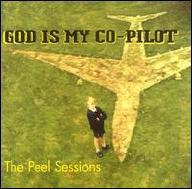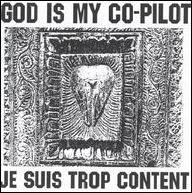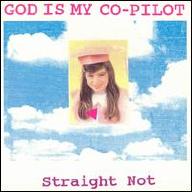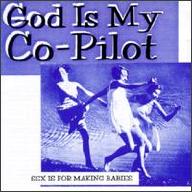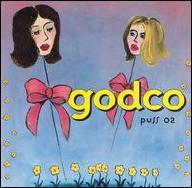Topper and Flanagin founded God Is My Co-Pilot in 1990 after finding themselves increasingly alienated from modern music; in true D.I.Y. spirit, Flanagin bought his first guitar and soon developed a self-taught improvisational technique denying the very existence of chord progressions or other accepted patterns. With a rotating battery of percussionists, he and Topper -- a remarkable vocalist capable of stop-on-a-dime shifts from sweetness to savagery -- began performing throughout New York, becoming favorites at the famed avant-club the Knitting Factory. The first in a seemingly endless series of GodCo releases was the 1991 EP Four Steps Down the Road to Trouble, issued on the group's own Making of Americans label; their first full-length, the 34-song I Am Not This Body -- a wildly eclectic free-for-all -- followed a year later. Once the floodgates opened, they never stopped; the group's massive recorded output was itself a crucial element of their polemical stance, a direct challenge to the accepted notions of music industry production and consumption.
In 1993 alone, GodCo issued nearly ten separate releases, in a variety of formats (the full-length live CD Tight Like Fist, the EP When This You See Remember Me, and the cassette-only What Doctors Don't Tell You) on a string of different labels (including Knitting Factory Works, Dark Beloved Cloud, and Shrimper, respectively). In 1994, their long affiliation with John Zorn's Jewish Culture Series resulted in the release of Mir Shlufn Nisht, a straightforward collection of traditional Hebrew and Yiddish songs; in keeping with the Orthodox directive that the word "God" not be written down, the group even altered their name to read G-d Is My Co-Pilot. By 1995, along with usual flurry of new releases, they also began collecting early singles and EPs with the two-volume set The History of Music; other notable subsequent releases included 1995's Puss 02, 1996's The Best of God Is My Co-Pilot, and 1997's Excuse Me, Don't Squeeze Me, a collaboration with Melt-Banana. Get Busy followed in 1998. ~ Jason Ankeny, Rovi


